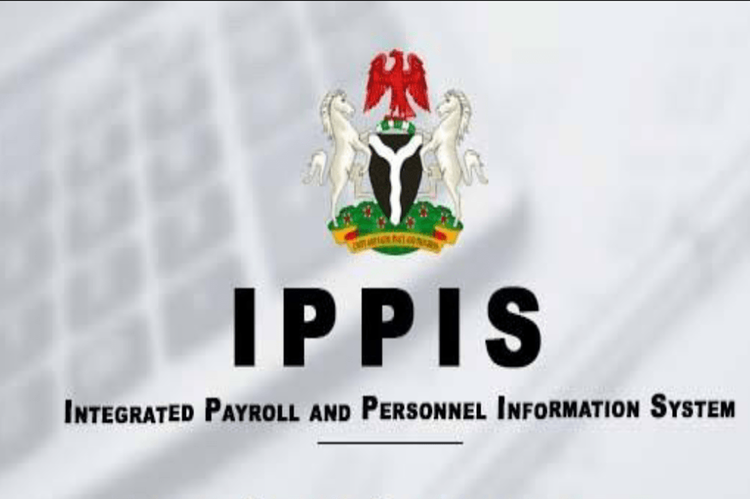By Karo OGBINAKA
IPPIS and UTAS, the ancient Greek Philosopher, Aristotle, stated that “reason is divine.” Seneca said, “virtue is nothing more than reason.” However, it was Heidegger, the German philosopher, who lamented that “the most thought-provoking thing of our thought-provoking time is that we are still not thinking.”
The recurrence of the spate of flagrant flouting of the agreement signed and reached between ASUU and the FGN, with attendant strike actions by the Union over the years, makes one wonder where thought has been put in our national life. The Federal Government introduced a new and centralized system of paying all public servants under her employment called the “Integrated Personnel and Payroll Information System” (IPPIS).
Its selling point is that it will help government manage its payroll budget, block loopholes and guard against indiscriminate employment of staff as well as put to bed the existence of “ghost workers” in government’s payroll, The Trumpet gathered.
This means IPPIS is an anti-corruption payment system. Why would any worker have problems with this? What is ASUU’s grouse against IPPIS?
For anything, ASUU has made IPPIS a well-known platform in Nigeria. It was conceptualized as far back as “2006 as a reform programme that set out to improve effectiveness and efficiency in the storage of personnel records and administration of monthly payroll in such a way to enhance confidence in staff.”
Today, there are over 696 MDAs on the IPPIS platform. ASUU quickly rejected IPPIS. Passed a vote of no confidence on IPPIS and went on to design what the union takes to be a relevant home grown payment platform that not only addresses all the highpoints of IPPIS but also cover the peculiarity of academics’ emolument in Nigeria. Perhaps to drive the point of corruption home, ASUU branded its own platform “Universities Transparency Accountability Solution” (UTAS).
The argument of ASUU is that IPPIS is foreign, rigid and lacks local content. One expects government to debunk this. ASUU also believes that IPPIS has failed – in spite of the assurances of government and its vendor – to address the peculiarities of itsemoluments such as payments for external examinations, associate appointments, sabbatical employments, and the autonomy of Universities to create new Departments, Units and Institutes and employ staffs to man these new organs. With the heated debates between the union and government, one expects reason to dictate that IPPIS has addressed these concerns and fears of the union; thus making UTAS an unnecessary payment platform. Government has failed to do so till date.
The union has accused government and some private interests of making gains against the interest of the State each time the foreign driven IPPIS is deployed for payment. It has been quiet from those who should clear such allegations.
Read Also: NDLEA arrests man with 20kg cocaine at airport
There is the fear of security breaches that would militate against national interest of Nigeria as a State so long as some critical sectors of our public service are paid through the IPPIS platform. Universities are established worldwide to be solution providers for the society. Consequently, the design of a payment platform for the university system in Nigeria, one that is purely local – should be something government ought to embrace and commend. If ASUU could do it for her members and sector, it follows that Nigerians have the capacity to create payment software for all sectors.
There are enough information and technological experts and bodies in Nigeria. Academics could interface them in order perfect this payment and other similar information technology platforms.
This may save Nigeria a lot in terms of foreign exchange. Without being an expert, one can argue that no IT system is perfect before it is used. They are usually developed and improved upon in course of their being used. They are always upgraded periodically.
A case in point is students’ registration and result platforms that most of our universities are currently using. They were not only locally created; they are also being constantly improved upon. The same holds for the system’s appraisal and promotion forms. Invariably, the design and creation of UTAS by Nigerians is nothing new and innovative to our university community.
The big challenge we have as a people is that anything Nigerian is looked down upon.
One expects government to challenge her eggheads before seeking help from outside our shores for solutions to our local problems. It is worrisome that one of the key values to be promoted by education as spelt out in the Nigerian “National Policy on Education” is often jettisoned by the same government that formulated it. It states that: “In consequence, the quality of instruction at all levels has been oriented toward inculcating [a value] of faith in man’s ability to make rational decisions; … shared responsibility for the common good of society.” This is exactly what ASUU has done in UTAS, yet government is its greatest critique and opponent.






